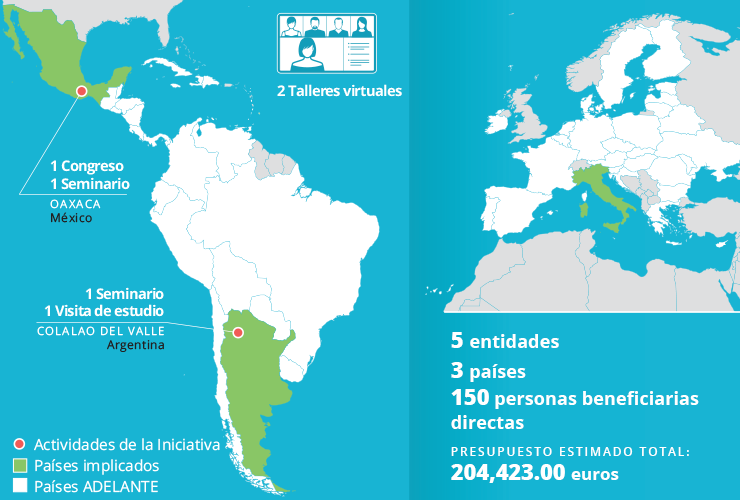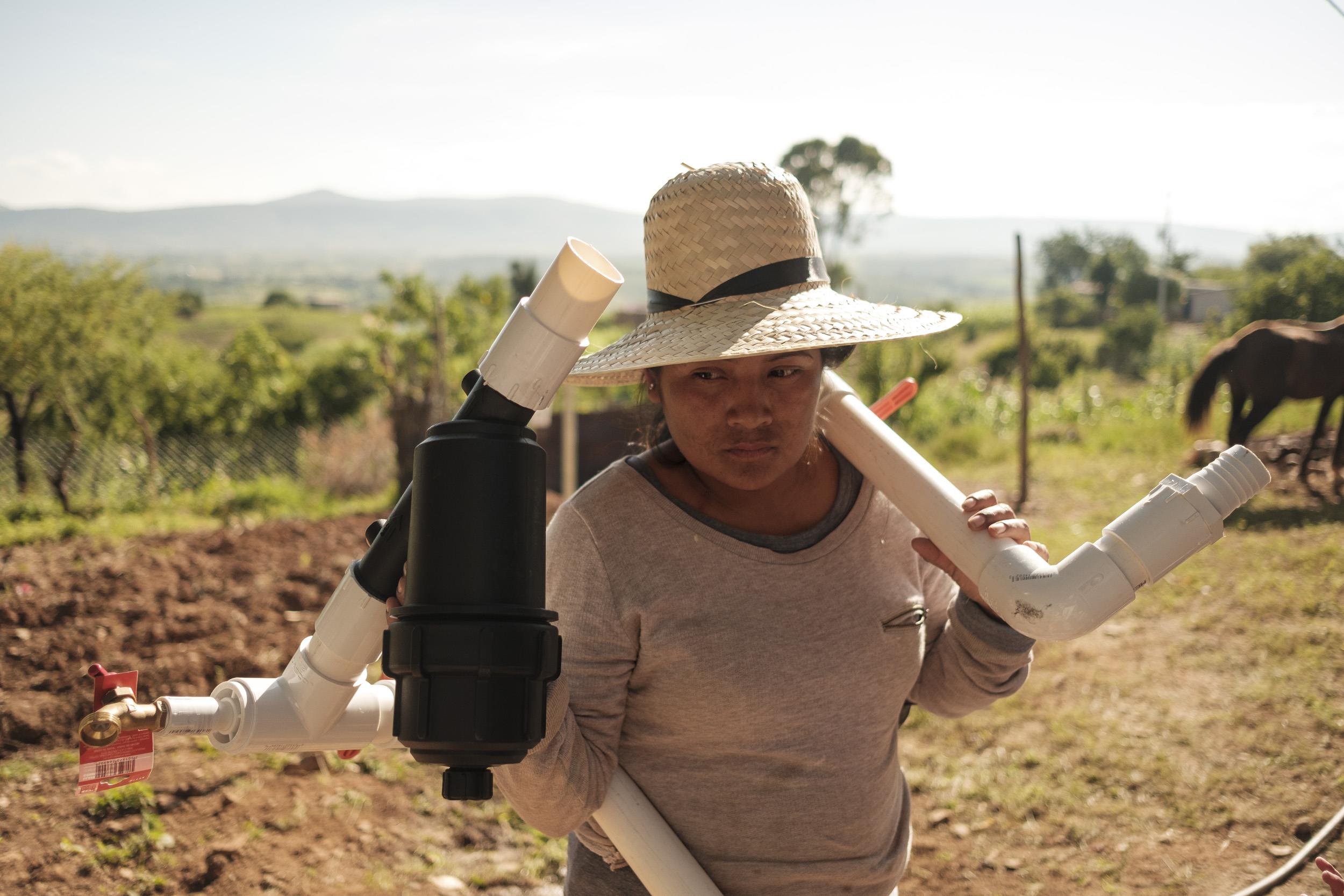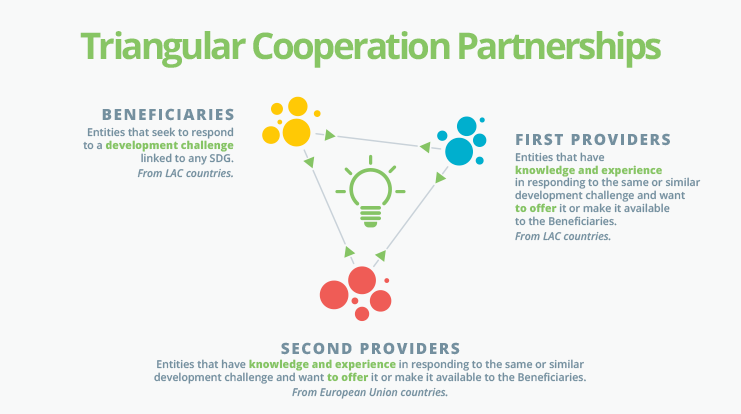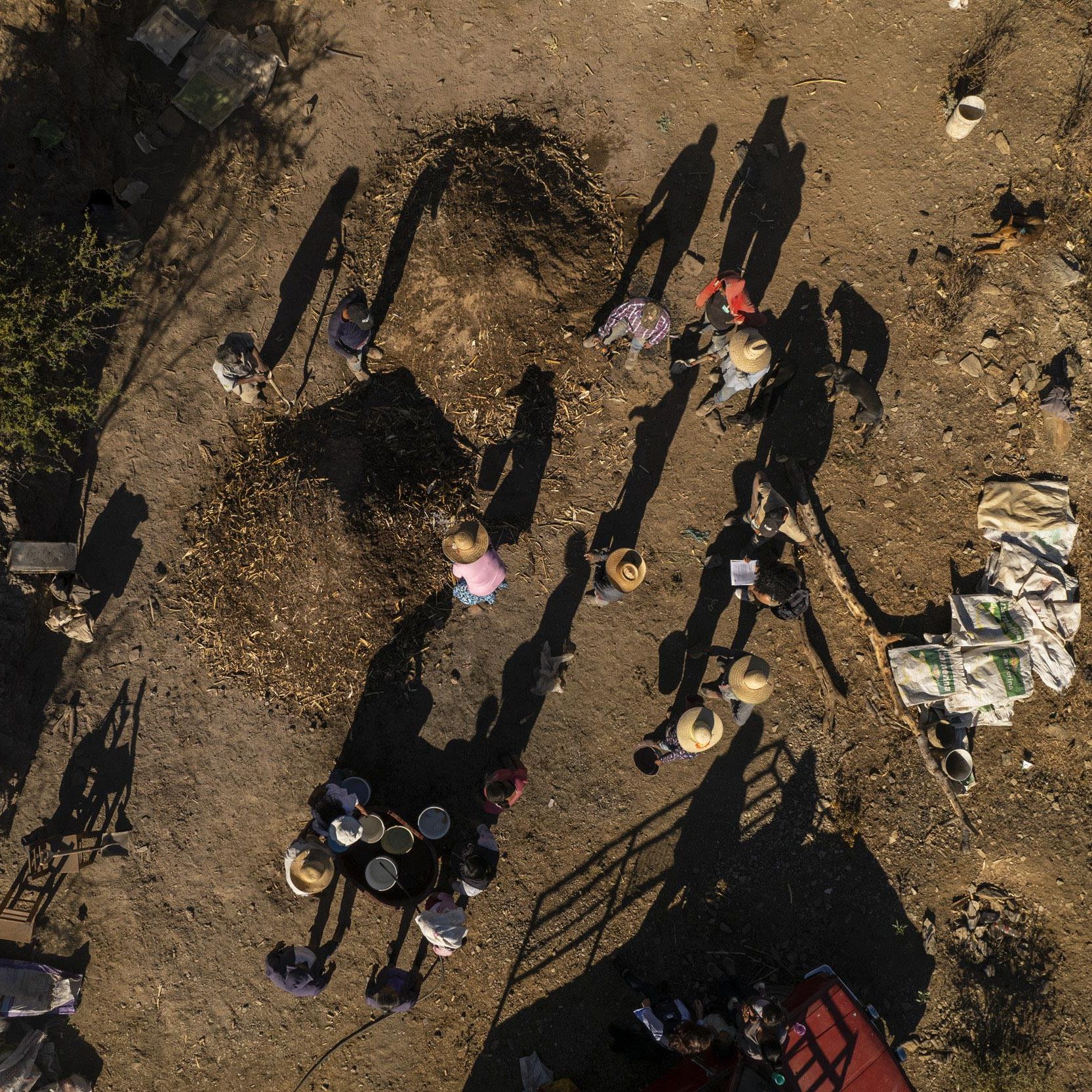The Triangular Cooperation Initiative
The solutions to the current challenges in the field of sustainable development cannot be – only – local.
Therefore, through ADELANTE 2, its Triangular Cooperation Programme, the European Union seeks to contribute to the fulfilment of the 2030 Agenda by strengthening regional cooperation initiatives.
AVSI is part of a group made up of 5 Italian, Mexican and Argentinian entities, that will work together on environmental education from September 2022 to March 2023.
This Partnership consists in the Fundación León, the Secretariat for International Relations of the Government of the Argentinian Province of Tucumán, AVSI México A.C., AVSI Foundation and the University of Bologna.

A glimpse at the context: poverty and the impact of climate change
In the most impoverished rural areas, the effects of climate change are exacerbated by poverty: environmental deterioration aggravates poverty and vice versa - a never-ending cycle we must act on. In such contexts, paying attention to natural resources becomes a particularly urgent matter. A shared challenge consists in providing access to and guarantee integral use of water resources to young people and women. On the one hand, it is important to get youth involved in virtue of their participation in the ecological transition; on the other hand, women must also be engaged with respect to the role they play in management, food safety and biodiversity safeguarding.
The main goal: to identify, together with the indigenous populations, good practices, recommendations, and lessons on water management in rural contexts
Thanks to the Initiative cofinanced by the European Union, the members of the above-mentioned partnership share experiences and skills in various technical and territorial fields to promote sustainable production, efficient resource management and inclusive strategies.
The goal is to create an efficient water management model in rural contexts, involving the indigenous populations, by sharing knowledge and experience in water resource management, climate adaptation, along with the best educational approaches to involve vulnerable women and young people.
The intervention methodology: seminars, workshops, and events to promote environmental sustainability
Following a process of knowledge exchange and systematization among the different members of the Alliance, hybrid seminars will be organized (online and in attendance), opened to the Argentinian and Mexican indigenous communities to transfer knowledge, technical tools, and methodologies for the integral management of water resources in rural contexts.
The project also provides for two workshops: one will be led by UN Women to strengthen knowledge for the integration of gender approach in the development of projects, programs, and territorial development plans. The second workshop will be led by AVSI with a focus on virtuous training models in socioeconomic vulnerability contexts, with particular attention to environmental education experiences to mitigate the impact of climate change.
The University of Bologna will lead a study visit in Argentina and one in Mexico, to promote knowledge and practical tools in the field on bio-irrigation and sustainable food systems.
The initiative will end with the conference "Environmental education and management of water resources", an opportunity to present the results of the initiative.
This triangular cooperation action plan, within the ADELANTE initiative, is oriented towards the exchange, feedback and generation of knowledge and practices gained by the Partnership members in the territory, harnessing their knowledge in the education field and water resources management.
The project beneficiaries: young people and women from the Calchaquíes Valleys in Argentina and the Oaxaca indigenous communities in Mexico
During the European Year of Youth, the Adelante Initiative 2 aims to empower and engage young people to respond to the challenges of climate change and help them become protagonists of the ecological transition.
Young people must be allowed to develop knowledge, skills, and attitudes to live in a more sustainable way, to change their consumption patterns, to adopt healthier lifestyles and to participate – both individually and collectively – in creating solutions for a greener, more sustainable, and more inclusive future.
This vision can be put together with that portrayed by the European Green Deal, which promotes the global transition to a healthier and more sustainable food system, while also emphasizing youth participation, climate action and decision-making. This is the reason why environmental education becomes fundamental to empower young people as actors of sustainable development. In this regard, the beneficiaries include young people from Argentina and Mexico. Furthermore, the project will indirectly impact young students and researchers of the University of Bologna.
In addition to the Alliance members professionals, about 100 young people and women from the Calchaquíes Valleys of Argentina and the indigenous communities of Oaxaca, Mexico, will be able to participate in seminars on water resources management.
The end of the project will be marked by a closing conference – open to the general public through live broadcasting on various virtual platforms.

Triangular cooperation: what is that?
ADELANTE 2 considers Triangular Cooperation, within the framework of the recent reflections of the Global Partnership Initiative on Effective Triangular Cooperation (GPI), in the following manner:
Triangular Cooperation is a horizontal and partnership-centred modality, in which the complementary knowledge and experience of the different partners, as well as their resources, are harnessed to create joint solutions that respond to development challenges.
The three roles in Triangular Cooperation Partnerships:
- beneficiaries, entities that seek to respond to a development challlenge linked to any SDG – from LAC countries;
- first providers, entities that have knowledge and experience in responding to the same or similar development challenge and want to offer it or make it available to the beneficiaries – from LAC countries;
- second providers, entities that have knowledge and experience in responding to the same or similar development challenge and want to offer it or make it available to the beneficiaries – from European Union countries;
Roles can change during the course of a project and can be played by one or more partners who can be national cooperation agencies, international organizations, civil society and private associations, private philanthropy bodies.





